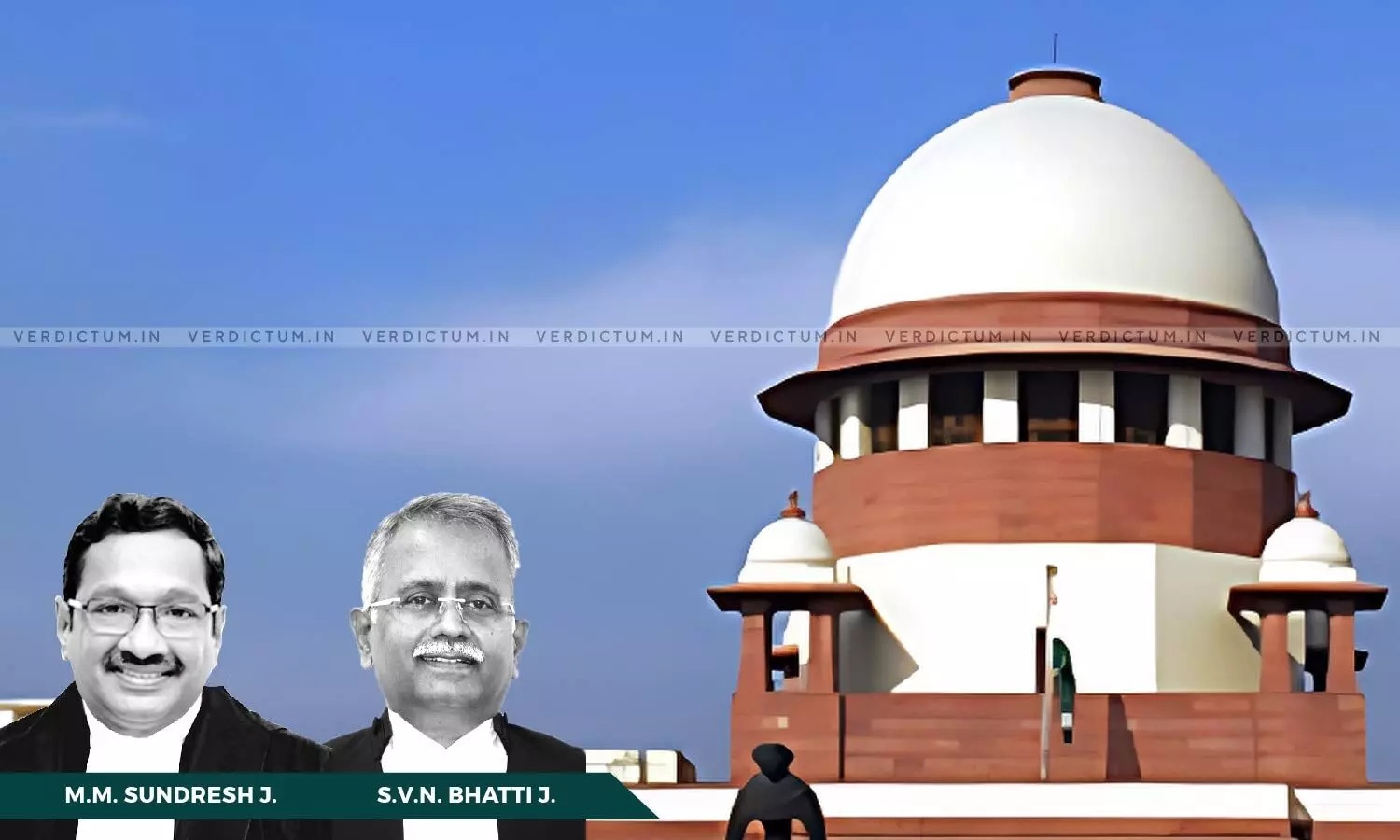
A Decision, However Erroneous, Not A Factor For Review, But Can Only Be Corrected In Appeal: Supreme Court
 |
|The Supreme Court has emphasized that a decision, however erroneous, can never be a factor for review and can only be corrected in appeal.
In that context, the Bench of Justice MM Sundresh and Justice SVN Bhatti observed that, "Mistake or error apparent on the face of record would debar the court from acting as an appellate court in disguise, by indulging in a re-hearing. A decision, however erroneous, can never be a factor for review, but can only be corrected in appeal. Such a mistake or error should be self-evident on the face of record. The error should be grave enough to be identified on a mere cursory look, and an omission so glaring that it requires interference in the form of a review. Being a creature of the statute, there is absolutely no room for a fresh hearing. The court has got no role to involve itself in the process of adjudication for a second time. Instead, it has to merely examine the existence of an apparent mistake or error. Even when two views are possible, the court shall not indulge itself by going into the merits."
Additional SG Aishwarya Bhati appeared for the appellants, while Senior Counsel Neeraj Kishan Kaul and Senior Counsel L Narsimha Reddy appeared for the respondents.
Between 1950 and 1959, a survey and settlement revision occurred in the village of Kompally, concluding on November 17, 1960. Respondent No. 1 filed an application under Section 87 of the A.P. Land Revenue Act, 1317 F., seeking rectification of a survey error, claiming ownership of the suit land, which spans 106.34 acres in Village Kompally, District Warangal. However, this application was rejected on January 10, 1975, only to be later allowed by the Joint Collector on July 7, 1981.
In 1971, a government notification under Section 15 of the A.P. Forest Act declared the land as reserved forest, based on the premise that it was forest land. Despite this declaration, the application filed by the Plaintiff was rejected, and the matter was remitted to the Joint Collector.
Following subsequent legal proceedings, including a suit filed by the Plaintiff in 1985 seeking a declaration of title and permanent injunction, the trial court granted title to the Plaintiff but denied the injunction. On appeal, the High Court reversed the trial court's decision, concluding that the suit property is forest land and dismissing the suit entirely.
A review was filed after the High Court's judgment, during which Defendant No. 1 constituted a committee to examine the suit property's status. The committee recommended excluding the land in favor of the Plaintiff, despite the District Collector's stand that the land was forest land. However, this decision was overturned in a review by another Learned Judge, who reversed the findings of the appeal, leading to the current appeal before the court.
The appellants argued that the High Court exceeded its jurisdiction in the review by re-hearing the case and acting as an appellate court, while the respondents contended that the proceedings before the Forest Settlement Officer had concluded, and the trial court had already recognized the plaintiff's title to the land.
The Court observed that, "A subsequent event per se cannot form the basis of a review. Sub-clause (c) of Order XLVII Rule 1 of the CPC 1908, clearly specifies that the important matter or evidence produced must have been available at the time when the decree was passed. This is a matter of rule."
With that background, the Court said that, "We are at a loss to understand as to how the High Court could interfere by placing reliance upon evidence produced after the decree, at the instance of a party which succeeded along with the contesting defendant, particularly in the light of the finding that the land is forest land which has become part of reserved forest."
In light of the same, the appeal was allowed, and the Court imposed costs of Rs. 5,00,000 each on the appellants and respondents.
Appearances:
Appellants: Additional SG Aishwarya Bhati
Respondents: Senior Counsel Neeraj Kishan Kaul, L Narsimha Reddy
Cause Title: The State of Telangana & Ors. vs Mohd. Abdul Qasim (Died) per LRS.
Click here to read/download the Judgment